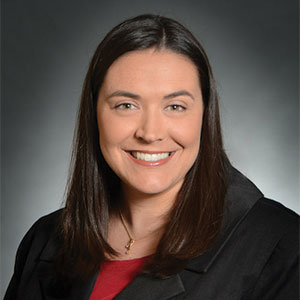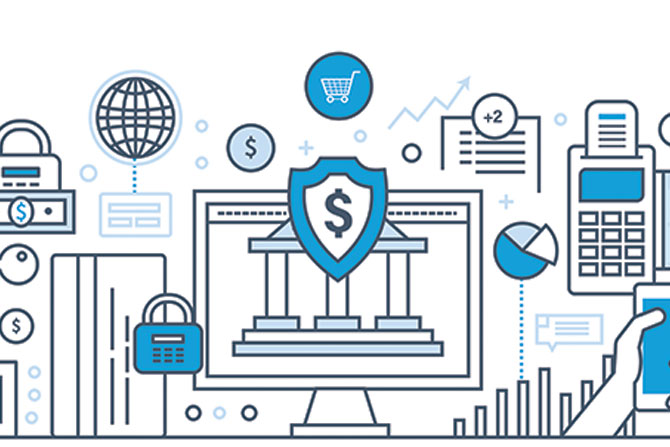By Russell Jessee and Sarah Ellis, Steptoe & Johnson PLLC

Even after amendments over the past five years, the West Virginia Consumer Credit and Protection Act (the “CCPA”) still has traps for the unwary creditor. Many times, when a debtor gets so far behind that he or she hires a lawyer, the lawyer combs the loan documents and scrutinizes the creditor’s debt collection efforts to find technical CCPA violations. Creditors cannot always avoid these claims of technical violations but being aware of the following fertile areas for debtor claims is an excellent first step.
Late fees. West Virginia may be the only state that has a statutory dollar-amount cap on late fees. A monthly late fee can be no more than 5% of the installment amount and never more than $30. (W. Va. Code § 46A-3-112(1)(a) (precomputed loans); W. Va. Code § 46A-3-113(1) (non-precomputed loans).)
The key to avoiding charging more than permitted is to follow your contracts. The statutory dollar-amount cap increased to $30 from $15 in 2015. However, simply because the statute changed does not mean that you can now charge $30 (if 5% of the installment is more than that). Presumably, your post-2015 loan contracts reflect the increase to $30. If so, you get to charge up to the $30 cap. Pre-2015 loans likely reflect the then-effective $15 cap, and older loan documents may have even lower caps. For all pre-2015 loans, you’re still limited to the contracted-for cap amount.
Default charges. West Virginia Code § 46A-2-115 establishes West Virginia’s limits on default charges. Subsection (b)(2) lists the default charges that a consumer loan may include. One key thing to be aware of is that legal fees (other than specified trustees’ fees) are not recoverable. Do not have any reference in your loan documents to recovering legal fees in the event of a default. Plaintiffs’ lawyers will pounce on that, alleging that the very presence of the language is unconscionably coercive.
Subsection (b)(3) of the statute, listing the circumstances under which authorized default charges may be collected, has an interesting twist. A creditor cannot assess or collect authorized and contracted-for default charges unless, among other requirements, the charge is incurred after the last day allowed for a cure and “the holder of the consumer loan and the consumer have agreed to cancel any pending trustee’s sale or other foreclosures on the real property securing the consumer loan.” (W. Va. Code § 46A-2-115(b)(3)(C)-(D).) Those are curious requirements taken together. Read literally, a creditor may collect default charges incurred only after it is too late to cure and only if the foreclosure sale is canceled.
No reported decision construes the most recent amendments to the default charges statute, so this is an area to tread very, very carefully. The safest course is to reflect in your loan contracts the statutory language in subsection (b)(2) about which default charges are permissible and then assess and collect them only if you can comply with all the requirements of subsection (b)(3).
Debt collection calls. The CCPA now has safe harbors on debt collection calls. So long as you (i) make no more than 30 calls per week, (ii) speak to the debtor (or anyone) no more than 10 times per week, and (iii) call only between 8 a.m. and 9 p.m., you are presumptively safe. (W. Va. Code § 46A-2-125(d).) Of course, do not use any profane, obscene, or abusive language, and make sure that your callers identify themselves at the beginning of calls. (W. Va. Code § 46A-2-125(a)-(b).)
Also, if a debtor hires a lawyer in an effort to stop your debt collection, the debtor must notify you in writing (on paper or electronically) and identify their lawyer. (W. Va. Code § 46A-2-128(e).) You have 72 hours to stop debt collection after receiving such written notice, but you may continue to send regular account statements and required notices.
Requests for statements. A final trick to be aware of is that a distressed debtor may send a request for an account statement. West Virginia Code § 46A-2-114(2) requires that a creditor provide one free annual account statement upon written request. Rather than ignore such a request, assuming that the monthly account statements should be enough, it is best to respond with a full statement covering the previous 12 months promptly.

Russell Jessee is a member of the Charleston office of Steptoe & Johnson PLLC. He heads the firm’s Business Litigation Group. Russell defends banks and other businesses in all manner of disputes and strives to reach resolutions that make business sense for his clients. He does not litigate for the sake of litigation. Rather, he seeks efficient resolution so clients can focus on what they do best — running their businesses. He can be reached at Russell.Jessee@Steptoe-Johnson.com or (304) 353-8103.

Sarah Ellis also is a member of the Charleston office of Steptoe & Johnson PLLC. Her love of business transactions stems from her childhood when she accompanied her dad, a real estate developer and contractor, to his office almost daily. In addition to transactions, Sarah works closely with banking clients on collateral, bankruptcy and collection issues. She can be reached at Sarah.Ellis@Steptoe-Johnson.com or (304) 353-8127.
This story appears in Issue 4 2020 of the West Virginia Banker Magazine.







